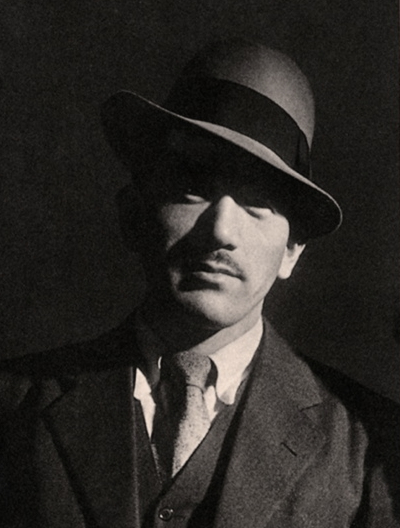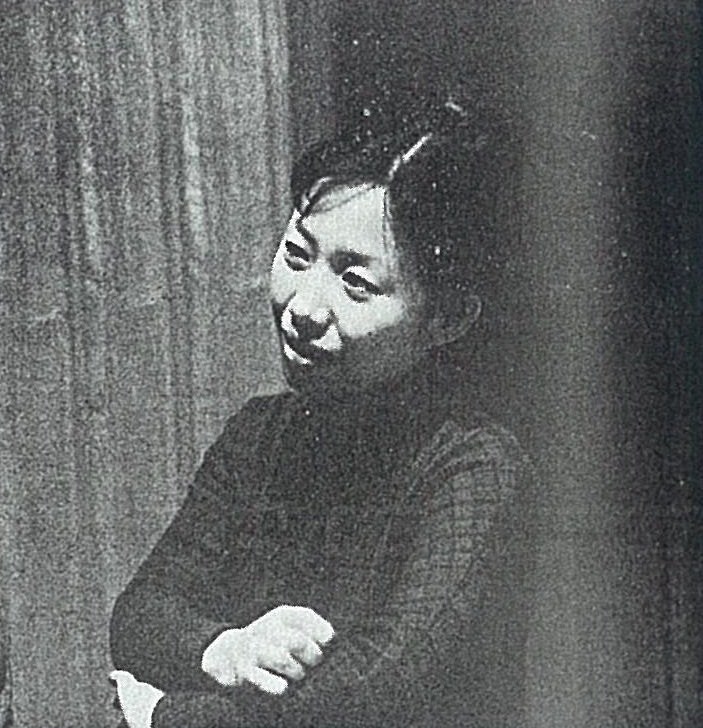|
An Autumn Afternoon
is a 1962 Japanese drama film directed by Yasujirō Ozu for Shochiku Films. It stars Ozu regular Chishū Ryū as the patriarch of the Hirayama family who eventually realises that he has a duty to arrange a marriage for his daughter Michiko (Shima Iwashita). It was Ozu's last film; he died the following year on the day he turned 60. Today, ''An Autumn Afternoon'' is considered by many to be one of Ozu's finest works. Plot Tokyo, 1962. Shūhei Hirayama (Chishū Ryū) is an aging widower with a 32-year-old married son, Kōichi (Keiji Sada), and two unmarried children, 24-year-old daughter Michiko (Shima Iwashita) and 21-year-old son Kazuo ( Shin'ichirō Mikami). The ages of the children and what they respectively remember about their mother suggests that she died just before the end of the war, perhaps in the bombing of Tokyo in 1944–45. Since his marriage, Kōichi has moved out to live with his wife in a small flat, leaving Hirayama and Kazuo to be looked after by Michiko. Hir ... [...More Info...] [...Related Items...] OR: [Wikipedia] [Google] [Baidu] |
Yasujirō Ozu
was a Japanese film director and screenwriter. He began his career during the era of silent films, and his last films were made in colour in the early 1960s. Ozu first made a number of short comedies, before turning to more serious themes in the 1930s. The most prominent themes of Ozu's work are marriage and family, especially the relationships between generations. His most widely beloved films include ''Late Spring'' (1949), ''Tokyo Story'' (1953), and ''An Autumn Afternoon'' (1962). Widely regarded as one of the world's greatest and most influential filmmakers, Ozu's work has continued to receive acclaim since his death. In the 2012 ''Sight & Sound'' poll, Ozu's ''Tokyo Story'' was voted the third-greatest film of all time by critics world-wide. In the same poll, ''Tokyo Story'' was voted the greatest film of all time by 358 directors and film-makers world-wide. Biography Early life Ozu was born in the Fukagawa, Tokyo, the second son of merchant Toranosuke Ozu and his wife ... [...More Info...] [...Related Items...] OR: [Wikipedia] [Google] [Baidu] |
Ellipsis (narrative Device)
Ellipsis is the narrative device of omitting a portion of the sequence of events, allowing the reader to fill in the narrative gaps. Aside from its literary use, the ellipsis has a counterpart in film production. It is there to suggest an action by simply showing what happens before and after what is observed. The vast majority of films use ellipses to clear actions that add nothing to the narrative. Beyond these "convenience" ellipses, ellipses are also used to advance the story. Description An ellipsis in narrative leaves out a portion of the story. This can be used to condense time, or as a stylistic method to allow the reader to fill in the missing portions of the narrative with their imagination. Ellipsis was also used in literature, as in the modernist works of Ernest Hemingway who pioneered the Iceberg Theory, also known as the theory of omission. Virginia Woolf's novel ''To the Lighthouse'' contains famous examples of literary ellipses. Between the first and second parts of ... [...More Info...] [...Related Items...] OR: [Wikipedia] [Google] [Baidu] |
Fujio Suga
Fujio (written: 正行, 藤雄, 藤夫, 不二夫, 富士雄, 冨士夫, 富士夫, 富士男, 希仁男 or ふじを, ふじお in hiragana) is a masculine Japanese given name. Notable people with the name include: *, Japanese manga artist *, Mongolian sumo wrestler *, Japanese businessman *, Japanese scientist and writer *, Japanese cyclist *, Japanese golfer *, Japanese photographer *, Japanese inventor *, Japanese businessman *, Japanese boxer *, Japanese writer *, Japanese chef *, Japanese fencer *, Japanese footballer *, Japanese artist Surname *Kaori Fujio Kaori Chiba-Fujio ( ja, 千葉 香織; born January 29, 1981 in Minami-Alps, Yamanashi) is a field hockey player from Japan. She represented her native country at the Summer Olympics (2004, 2008 and 2012 [...More Info...] [...Related Items...] OR: [Wikipedia] [Google] [Baidu] |
Matsuko Shiga
Matsuko is a feminine Japanese given name. Notable people with the name include: *Matsuko Deluxe (born 1972), Japanese columnist, essayist and TV personality *, Japanese singer-songwriter *, Japanese lover of Katsura Kogorō See also *''Memories of Matsuko is a 2006 Japanese musical film written and directed by Tetsuya Nakashima. It is based on a Japanese novel by Muneki Yamada. It has not yet received North American distribution, though in its North American premiere at the 2007 New York Asian Fi ...'', a 2006 Japanese film {{given name Japanese feminine given names Feminine given names ... [...More Info...] [...Related Items...] OR: [Wikipedia] [Google] [Baidu] |
Shinobu Asaji
is a Japanese verb meaning or . It is a Japanese given name used by either sex. Shinobu is also the dictionary form of ''shinobi'' which can be combined with ''mono'' (者) to make ''shinobi no mono'' (忍びの者), an alternative name of ninja. Possible writings Shinobu can be written using different kanji characters and can mean: ;as a given name *忍, "endurance/perseverance/patience" *清信, "purify, belief" *志信, "intention, belief" ;as a male given name *信夫, "belief, man" The name can also be written in hiragana or katakana, though hiragana is typically reserved for females and katakana for foreign-born Japanese. People *Shinobu Adachi (忍, born 1958), Japanese voice actress and actress * Shinobu Asagoe (しのぶ, born 1976), Japanese professional tennis player *Shinobu Fukuhara (忍, born 1976), Japanese baseball pitcher *Shinobu Hashimoto (忍, born 1918), Japanese screenwriter, director, and producer * Shinobu "Inoran" Inoue (清信, born 1970), Japanese ... [...More Info...] [...Related Items...] OR: [Wikipedia] [Google] [Baidu] |
Toyo Takahashi
Toyo may refer to: Places * Tōyō, Kōchi, a town in Japan * Tōyo, Ehime, a former city in Japan *Toyo Province, a Japanese province divided in 683 *Tōyō, Kumamoto, a village located in Yatsuhiro District, Kumamoto, Japan * Tōyō, Tokyo, a neighborhood in Koto, Tokyo. People * ''Mr. Toyo'' (stagename) ringname of wrestler Rusher Kimura * ''Ms. Toyo'' (stagename) Bogli Leader Katchii Given name *Toyo Ito (born 1941), Japanese architect *Toyo Mitunobu (1897–1944), Japanese rear admiral * Sesshū Tōyō (1420–1506), Japanese master of ink and wash painting *, Japanese poet *, Japanese samurai *Toyo (queen), Queen of Yamataikoku Surname * Javier Toyo (born 1977), Venezuelan football goalkeeper *Mohamed Khir Toyo (born 1965), former ''Dato' Menteri Besar'' (Chief Minister) of the state of Selangor in Malaysia Corporations *Toyo Engineering Corporation, an engineering, procurement and construction company serving mainly the hydrocarbons and petrochemical sectors ... [...More Info...] [...Related Items...] OR: [Wikipedia] [Google] [Baidu] |
Masao Oda
Masao (written: 正雄, 正夫, 正生, 正男, 正郎, 雅雄, 雅央, 雅夫, 雅勇, 雅男, 昌雄, 昌夫, 昌男, 昌朗, 昌郎, 昌大, 政雄, 政夫, 政男, 政於, 征夫, 優夫, 聖雄, 利生, 将雄, 将夫 or 眞男) is a masculine Japanese given name. Notable people with the name include: *, Japanese philosopher and writer *, Japanese screenwriter and film director *, Japanese politician *, Japanese sumo wrestler *, Japanese sport wrestler *, Japanese motorcycle racer *, Japanese general *Masao Doi, Japanese academic *, Japanese baseball player *, Japanese photographer and sculptor *Inaba Masao, Japanese military officer and rebel *, Japanese activist and academic *, Japanese triple jumper *, Japanese photographer *, Japanese sprinter *, Japanese actor and film director *, Japanese professional wrestler *, Japanese neuroscientist *, former President of the Republic of China (Taiwan) *Masao Kanamitsu (1943–2011), Japanese American meteorologist *, Japanese Go play ... [...More Info...] [...Related Items...] OR: [Wikipedia] [Google] [Baidu] |
Daisuke Katō
was a Japanese actor. He appeared in over 200 films, including Akira Kurosawa's ''Seven Samurai'', ''Rashomon'', ''Yojimbo'', and ''Ikiru''. He also worked repeatedly for noted directors such as Yasujirō Ozu, Mikio Naruse and Kenji Mizoguchi. Career Born as Tokunosuke Katō to a theatrical family, his older brother was the actor Kunitarō Sawamura and his older sister the actress Sadako Sawamura. He joined the Zenshinza Theatre Company in 1933 and appeared in a number of stage and film productions under the stage name Enji Ichikawa, including Sadao Yamanaka's '' Humanity and Paper Balloons'' and Kenji Mizoguchi's '' The 47 Ronin''. After spending the war in New Guinea, he returned to Japan and signed with the Daiei Film studio, appearing now under the name Daisuke Katō. In addition to appearing in traditional jidaigeki roles, notably as one of Kurosawa's ''Seven Samurai'', Katō became a popular everyman in contemporary shōshimin-eiga movies. His transfer to Toho in 1951 wa ... [...More Info...] [...Related Items...] OR: [Wikipedia] [Google] [Baidu] |
Michiyo Kan
Michiyo (written: 道世, 道代, 路代, 真世, 充代, 通世, 迪与, 美千代, 実千代, 美智代, 美知依, 美知代, 三千代 or みちよ in hiragana) is a unisex Japanese given name. Notable people with the name include: *, Japanese manga artist *, Japanese actress *, Japanese baseball player *, Japanese singer and actress *, Japanese synchronized swimmer *Michiyo Fukaya (1953–1987), American poet and activist *, Japanese singer-songwriter *, Japanese high jumper *, Japanese volleyball player *, Japanese actress *Michiyo Kikuta, Japanese manga artist and creator of Mamotte! Lollipop is a Japanese shōjo manga series written and illustrated by . It was serialized in the magazine ''Nakayoshi'' and published by Kodansha in Japan between February 2003 and July 2005. The story revolves around female protagonist Nina Yamada, ... *, Japanese actress and voice actress *, Japanese singer and voice actress *, Japanese actress *, Japanese politician *, Japanese footba ... [...More Info...] [...Related Items...] OR: [Wikipedia] [Google] [Baidu] |
Kyōko Kishida
was a Japanese actress, voice actress, and writer of children's books. Career Kishida became an actress in 1950, and starred in a Yukio Mishima production of the 1960 film '' Salome''. Her film and television drama credits number in the hundreds. Among them are four Taiga drama series on NHK television, with roles such as Aguri (the wife of Asano Naganori and Yodo-Dono (the wife of Toyotomi Hideyoshi). She appeared in various roles, including acting and narrating, in various ''Ōoku'' series on television. In the series ''Gokenin Zankurō'', she portrayed the mother of the title character (played by Ken Watanabe), and narrated a ''Lone Wolf and Cub'' television series. Kishida's film credits include Yasujirō Ozu's ''An Autumn Afternoon'' (1962), ''The Broken Commandment'' (based on a novel by Shimazaki Toson), Hiroshi Teshigahara's ''Woman in the Dunes'' (1964) and ''The Face of Another'' (1966) (both from novels by Kōbō Abe), Yasuzo Masumura's '' Manji'' (1964) (based on a n ... [...More Info...] [...Related Items...] OR: [Wikipedia] [Google] [Baidu] |

